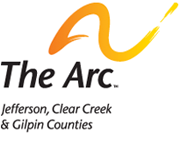For more than 50 years, Colorado chapters of The Arc have advocated for the rights of people with intellectual and developmental disabilities (I/DD) to live independently, exercise choice and control over their lives and contribute to their communities by being fully included in educational, economic, social, spiritual, and cultural endeavors. Below is the 2017 public policy agenda for Colorado chapters of The Arc:
Funding and policy changes to strengthen the CO Medicaid State Plan, state programs, and HCBS Medicaid waivers for people with disabilities to include support for:
- Full implementation of Colorado’s Olmstead Plan for community based services for people with Intellectual/Developmental Disabilities (I/DD) with funding and flexibility to ensure necessary supports in community based settings for all—including people with complex conditions and the need for intensive supervision and monitoring;
- Creation of an independent Ombudsman program (similar to the existing Long Term Care Ombudsman Program) for people with IDD who receive services and their families;
- Expanding the Colorado Medicaid state plan to ensure that all people who meet level of care requirements have access to personal care, homemaker, health maintenance services, home health benefits and behavioral/mental health services;
- Increased service limits on Occupational Therapy, Physical Therapy, and Speech Therapy in the Medicaid state plan;
- Implementation of plans to ensure that competitive integrated employment is the first and preferred option for people with IDD, regardless of level of disability;
- Amendment to the Colorado Olmstead plan to include supports for competitive employment;
- Increased funding for family support including respite and other services needed to maintain family stability;
- Expansion of Mental Health/IDD crisis stabilization and intervention pilots;
- Expansion of Inclusive Higher Education programs to Denver metro area and Western slope.
- Options for self-direction and individual control of budgets in Home and Community Based Services (HCBS) Medicaid waivers as well as Medicaid state plan benefits;
- Increases for Supported Living Services waiver levels to allow for rate increases; and
- Retention of the IDD Cash Fund
Colorado students with disabilities have a legal right to free, appropriate educational opportunities in all public schools, including charter schools, with accompanying supports in the least restrictive environment. Colorado must provide for:
- Special education services provided in the least restrictive setting by qualified teachers, staff and therapists for all eligible students including an appropriate continuum of services, para-professional support, and related supports including transportation;
- Adequate medical, nursing, and behavioral support services for students with complex needs;
- Meaningful transition services for students with disabilities must be person-centered, including preparation for continuing education, work-based experiences resulting in competitive integrated employment, and successful community living;
- Prohibition of prone restraint in schools;
- Elimination of corporal punishment in public schools;
- Alternatives to expulsion and suspension of children pre-k –age eight;
- Adoption of reporting standards regarding all examples of restraint and seclusion in schools, and
- Establishment of a complaint and grievance process for families in cases of restraint and seclusion.
Coloradoans with disabilities prefer to live, learn, and work in their community of choice. State systems must be made transparent, simplified and strengthened to ensure ready access to community living including:
- Consistent standards for enrollment in HCBS/DD waiver for emergency cases;
- Replace the Children’s Habilitative Residential Program (CHRP waiver) to allow for necessary out of home placement for children without accessing the child welfare system, and
- Medicaid waiver simplification to create a single HCBS waiver for all eligible adults with intellectual/developmental disabilities with access to services and supports when and where needed throughout their lifetimes.
Protection of civil rights for people with disabilities including:
- Policies for authorized representatives to ensure that the needs and choices of people with I/DD are respected and honored;
- Consideration of a voluntary state issued identification card for persons with IDD;
- Examination and reform of requirements for Imposition of Legal Disability for persons at Regional Centers as well as those in community based service;
- Independent monitoring of all Colorado Regional Centers;
- School discipline policies that provide behavioral supports for students with disabilities that minimize restraint and involvement of law enforcement;
- Limit the use of emergency interventions only to those situations where a student’s unexpected behavior poses a clear and present danger of serious physical harm to him or herself and others and require that only staff currently trained and competent apply restraint, and time-out interventions;
- Fair treatment of juveniles with disabilities in the criminal justice system to avoid incarceration and implementation of restorative justice programs for all citizens; and
- Guardianship policies and practices that respect the right of people with disabilities to manage their own affairs with informal assistance and guidance from family, friends, and others. If guardianship is essential, it should be used only to the extent necessary, with a presumption in favor of limited rather than full guardianship, and
- Establishment of an Office of Public Guardianship.


